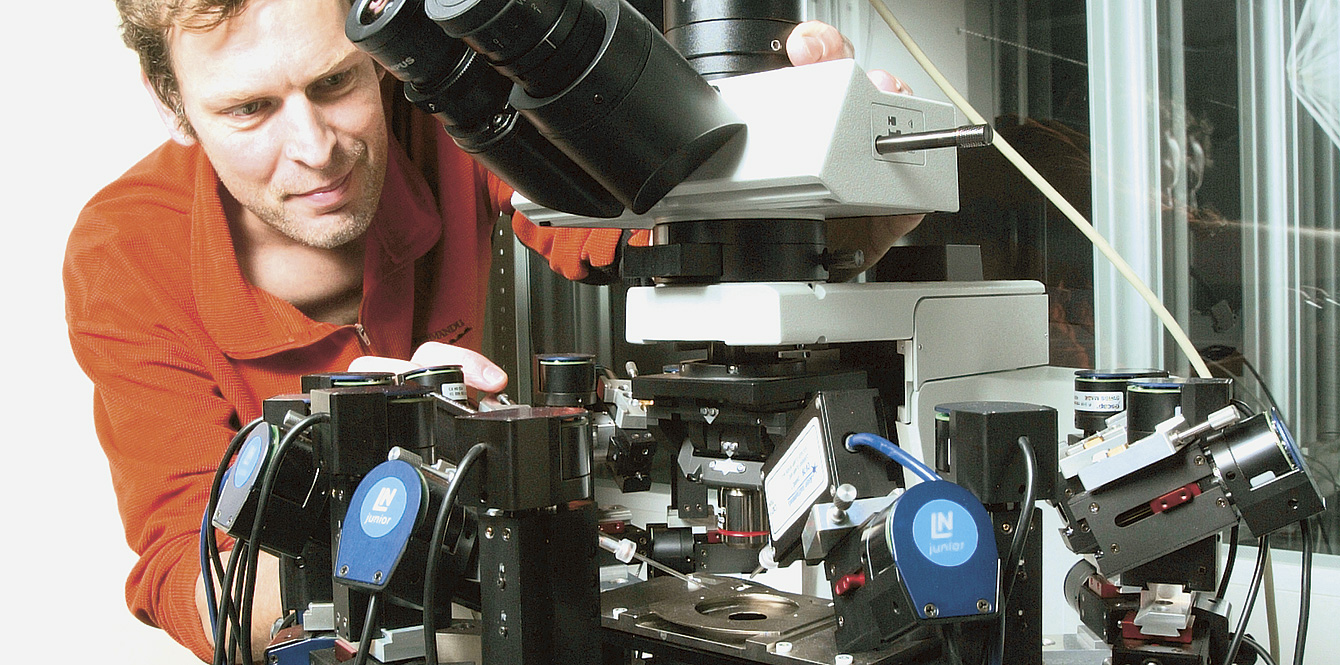
In the Lake Geneva region, a number of promising projects focus on developing neurological technology. Today, the Human Brain Project cements Health Valley’s position as a centre for excellence in neuroscience
“We do not understand the human brain very well.” Richard Frackowiak, chief of the Neurology Service at the Lausanne University Hospital (CHUV) and co-founder of the Human Brain Project (HBP), measures the challenges posed by the European project that he launched with Henry Markram of the Swiss Federal Institute of Technology in Lausanne (EPFL) and Karlheinz Meier of Heidelberg University. The HBP aims to bring together more than a thousand computer engineers and experts in clinical andfundamental neuroscience to understand the structure of the human brain and how it functions. “Today, we don’t have an overall vision of the brain, its connections or exactly how it works.”
The Human Brain Project is supported by the European Commission and will receive €1 billion in funding over 10 years (as this issue went to press, this funding was thrown into question following the approval of the anti-immigration initiative in Switzerland). The funding will make it possible to compile all the data on studies of the brain from participating hospitals in a supercomputer to create a virtual model. “If we reach our goal, we will be able to use this information to better diagnose and predict neurodegenerative diseases as well as develop drugs that are less costly and more efficient. As things stand, no less than 35% of Alzheimer’s disease diagnoses are wrong!”
Grégoire Courtine (TEDx CHUV)
Campus Biotech in Geneva will be one of the project’s hubs. The HBP illustrates the innovative work being led in French-speaking Switzerland to understand the brain. From Geneva and Lausanne to Fribourg and Valais, all university laboratories are helping develop neuroscience in Health Valley. “French-speaking Switzerland is especially advanced in terms of using fundamental neuroscience research in clinical applications,” says Michel Christoph, president of the Swiss Society for Neuroscience.
Grégoire Courtine, considered one of the most promising neurological rehabilitation researchers in the world, is spearheading Project Re-walk at the EPFL. The initiative seeks to use neurostimulation to assist in the rehabilitation of spinal cord injury victims. He demonstrated how a paralysed rat gradually regained the use of its legs and was able to move them voluntarily. “Our success comes in stages,” he says. “After testing rats, we are conducting tests on monkeys in collaboration with professor Eric Rouiller at the University of Fribourg. In addition, eight voluntary patients with incomplete spinal cord injury from the CHUV will also test our system this year.”
As things stand, no less than 35% of Alzheimer’s disease diagnoses are wrong!
The right environment
Also at the Lausanne campus, Aleva Neurotherapeutics is revolutionising technology for brain electrode implants. The start-up has designed a microelectrode that drastically reduces the side effects from treating neurological disorders such as Parkinson’s disease.
The company’s director, Jean-Pierre Rosat, believes that the Lake Geneva region’s development and success as a centre for excellence in neuroscience is the fruit of efforts led for over ten years by EPFL president Patrick Aebischer. “He set up the School of Life Sciences in 2012 and did what it took to build up an adequate critical mass. He brought in the world’s best engineers, who could work with the best biologists and doctors to develop the study of neuroscience and its clinical applications.”
Patrik Vuilleumier agrees. He is the director of the Geneva Neuroscience Centre, which is active in the use of neuroimaging to observe emotions. “The collaboration between Lausanne and Geneva has played a role in this success. We are taking advantage of our geographical proximity to share our expertise in different areas.”
The Human Brain Project is supported by the European Commission and will receive €1 billion in funding over 10 years (as this issue went to press, this funding was thrown into question following the approval of the anti-immigration initiative in Switzerland).